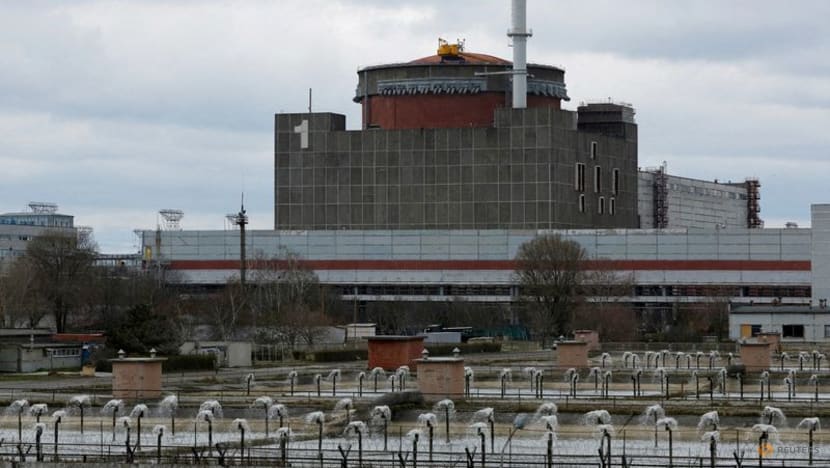No immediate risk at Ukraine nuclear plant after dam damage: IAEA

A view shows the Zaporizhzhia Nuclear Power Plant in the course of the Russia-Ukraine conflict outside Enerhodar in the Zaporizhzhia region, Russian-controlled Ukraine, on Mar 29, 2023. (File photo: Reuters/Alexander Ermochenko)
VIENNA: The UN's nuclear watchdog said on Tuesday (Jun 6) that it saw "no immediate nuclear safety risk" but was exploring options to get water to keep cooling Europe's biggest atomic plant after a dam in southern Ukraine was damaged.
Moscow and Kyiv have blamed each other for the damage at the Kakhovka hydroelectric dam and offered conflicting versions on the safety situation at the Russian-occupied plant, some 150km away.
The Kakhovka dam sits on the Dnipro river, which feeds a reservoir providing cooling water for the Zaporizhzhia nuclear power station.
The International Atomic Energy Agency (IAEA) said it was "closely monitoring the situation" at the plant but saw "no immediate nuclear safety risk".
Damage to the dam was leading to a reduction in the height of the reservoir of about 5cm per hour, IAEA head Rafael Grossi said in a statement to his agency's 35-member board of governors.
Water in the reservoir was at around 16.4m early Tuesday, and if it drops below 12.7m, then it can no longer be pumped to the plant, Grossi warned, adding this could happen in "a few days".
Plant staff were making "all efforts to pump as much water into its cooling channels and related systems as possible", while supplies for "non-essential consumers of water" at the plant were being stopped, he added.
Besides that, IAEA is looking to confirm whether a large cooling pond next to the site would be able to provide water for cooling "for some months", he said, adding that this pond "by design is kept above the height of the reservoir".
"VITAL" TO PROTECT POND
"It is therefore vital that this cooling pond remains intact. Nothing must be done to potentially undermine its integrity. I call on all sides to ensure nothing is done to undermine that," said Grossi, adding he will visit the plant next week.
The plant's reactors have already been shut down, but they still need cooling water to ensure there is no nuclear disaster.
"Absence of cooling water in the essential cooling water systems for an extended period of time would cause fuel melt and inoperability of the emergency diesel generators," Grossi warned.
Grossi has repeatedly called for the protection of the plant as shelling has taken place near it and several times disrupted its crucial power supply.
The plant's Russian-installed director, Yuri Chernichuk, said there was no security threat to the plant as the cooling pond could provide the water.
He said the water can be refilled with "water from the Kakhovka reservoir or with several alternative sources".
Ukraine - which in 1986 suffered the devastating Chernobyl nuclear disaster - sounded the alarm.
"The world once again finds itself on the brink of a nuclear disaster, because the Zaporizhzhia nuclear power plant lost its source of cooling. And this danger is now growing rapidly," Ukrainian presidential aide Mykhaylo Podolyak said.










